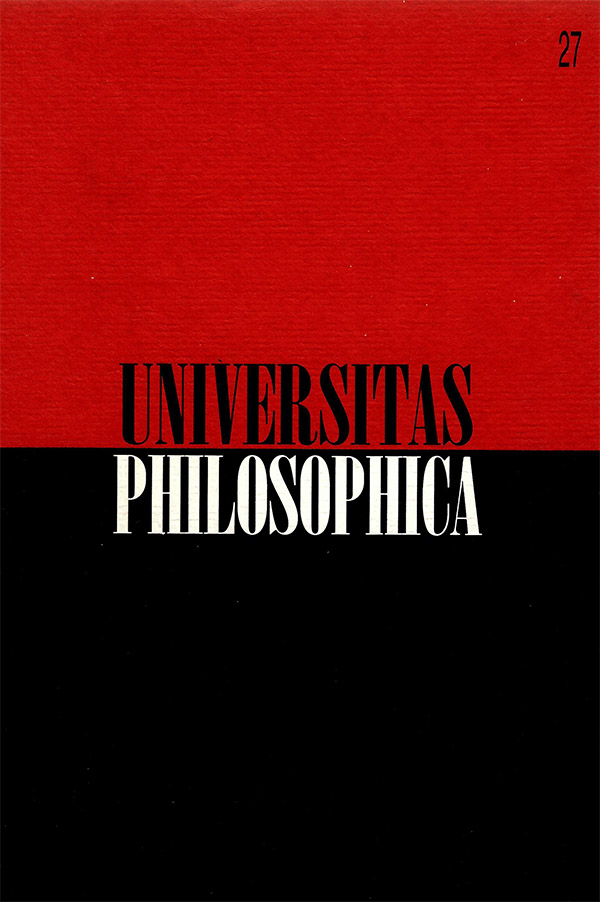Abstract
El presente artículo se divide en dos partes. En la primera se pretende estalecer una filosofía de la religión al concebir la filosofía como metodología fundamental, [y] la filosofía de la religión como la metodología fundamental de los estudios religiosos. Esta parte se divide en tres secciones: en la primera se efectúa una transición de la prioridad de la metafísica a la prioridad de la teoría cognitiva; en la segunda, se pasa de la psicología de facultades al análisis intencional; en la tercera se añaden los aspectos del análisis intencional que son específicamente relevantes para los estudios religiosos. La segunda parte del escrito se ocupa de las estructuras heurísticas de los estudios religiosos. Una primera preocupación abordada en esta parte es el manejo metódico de los problemas valorativos; la segunda, el ordenamiento de las diferencias debido a los desarrollos. Estos son los aspectos en los que Lonergan se diferencia del tomismo trascendental.This journal is registered under a Creative Commons Attribution 4.0 International Public License. Thus, this work may be reproduced, distributed, and publicly shared in digital format, as long as the names of the authors and Pontificia Universidad Javeriana are acknowledged. Others are allowed to quote, adapt, transform, auto-archive, republish, and create based on this material, for any purpose (even commercial ones), provided the authorship is duly acknowledged, a link to the original work is provided, and it is specified if changes have been made. Pontificia Universidad Javeriana does not hold the rights of published works and the authors are solely responsible for the contents of their works; they keep the moral, intellectual, privacy, and publicity rights.
Approving the intervention of the work (review, copy-editing, translation, layout) and the following outreach, are granted through an use license and not through an assignment of rights. This means the journal and Pontificia Universidad Javeriana cannot be held responsible for any ethical malpractice by the authors. As a consequence of the protection granted by the use license, the journal is not required to publish recantations or modify information already published, unless the errata stems from the editorial management process. Publishing contents in this journal does not generate royalties for contributors.


